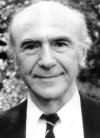General Józef Wybicki
Junior High School
Number 24 in Lodz

European citizens in my city,
the citizens of my city in Europe.
Liceo Scientifico "Pitagora" Rende, Italy

Jews / German / Polish / other nationalities /
art and culture / sportsmen / writers and poets / musicians / scientists / businessmen / others /
GERMAN
- Karol Joscher
- Karol Gottlob and Ludwik Anstadt
- Robert and Alfred Biedermann
- Ludwik Geyer
- Ludwik and Henryk Grohman
- Juliusz Heinzel
- Franciszek and Leopold Kindermann
- Karol Scheibler
- Karl Dedecius
Karl Dedecius
A renowned German translator of Polish and Russian Literature.
Dedecius was born to German parents in the city of Lodz, Poland, on May 20, 1921. He attended the Polish Stefan-Zeromski High School, where he received his high-school degree. After the German Invasion of Poland in the Second World War Dedecius was first drafted into the Reich Labor Service and then into the German Army. He was severely wounded in the Battle of Stalingrad and became a prisoner of war. During that time in the Soviet Union, he taught himself Russian. He wrote: „I lay in my sick-bed, and the nurses brought me books by Lermontov, for instance. For one year, I learned the Cyrillic Alphabet and Russian by reading Lermontov and Pushkin. Eventually, the guards asked me to write love-letters for them, because I wrote like Pushkin“
Dedecius was released in 1950. He settled at first with his fiancé in Weimar, in East Germany. In 1952, he emigrated to West Germany and became an employee of the Allianz AG insurance company. In his free time, he occupied himself with Polish culture and with Polish literary translation, and maintained contact with Polish writers.
In 1959, he published his first anthology, Lektion der Stille Lesson of Silence. In the following years he translated such well-known polish writers as Zbigniew Herbert, Stanislaw Jerzy Lec, Czeslaw Milosz, Tadeusz Rozewicz und Wislawa Szymborska. He also published essays on literature and translating technique.
In 1979/1980, he initiated the German Poland Institute in Darmstadt, whose director he remained until 1999. He also continued his literary activities.
Dedecius has received many honorary doctorates, prizes, and awards. In 1990, he received the Peace Prize of the German Book Trade.


